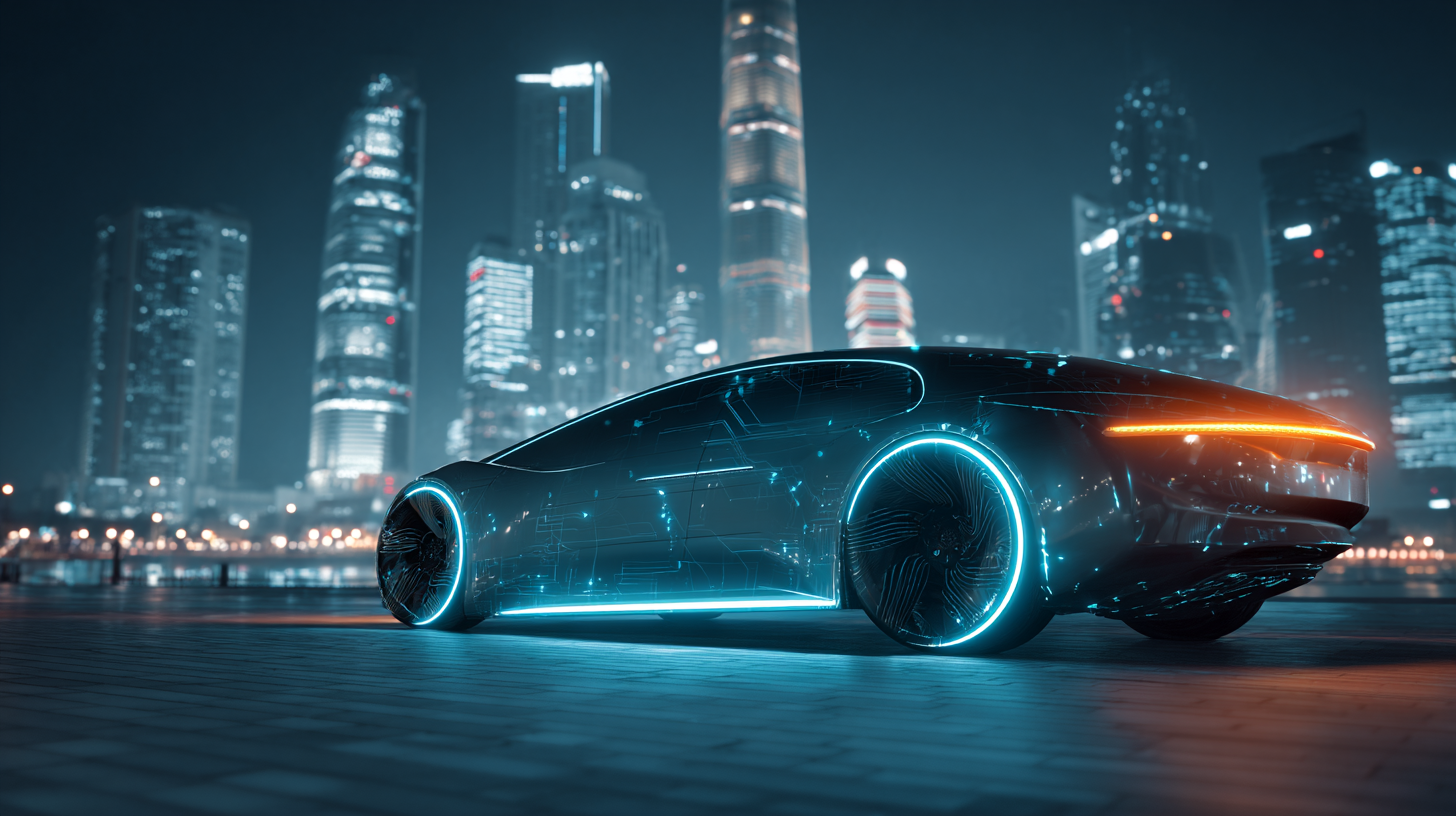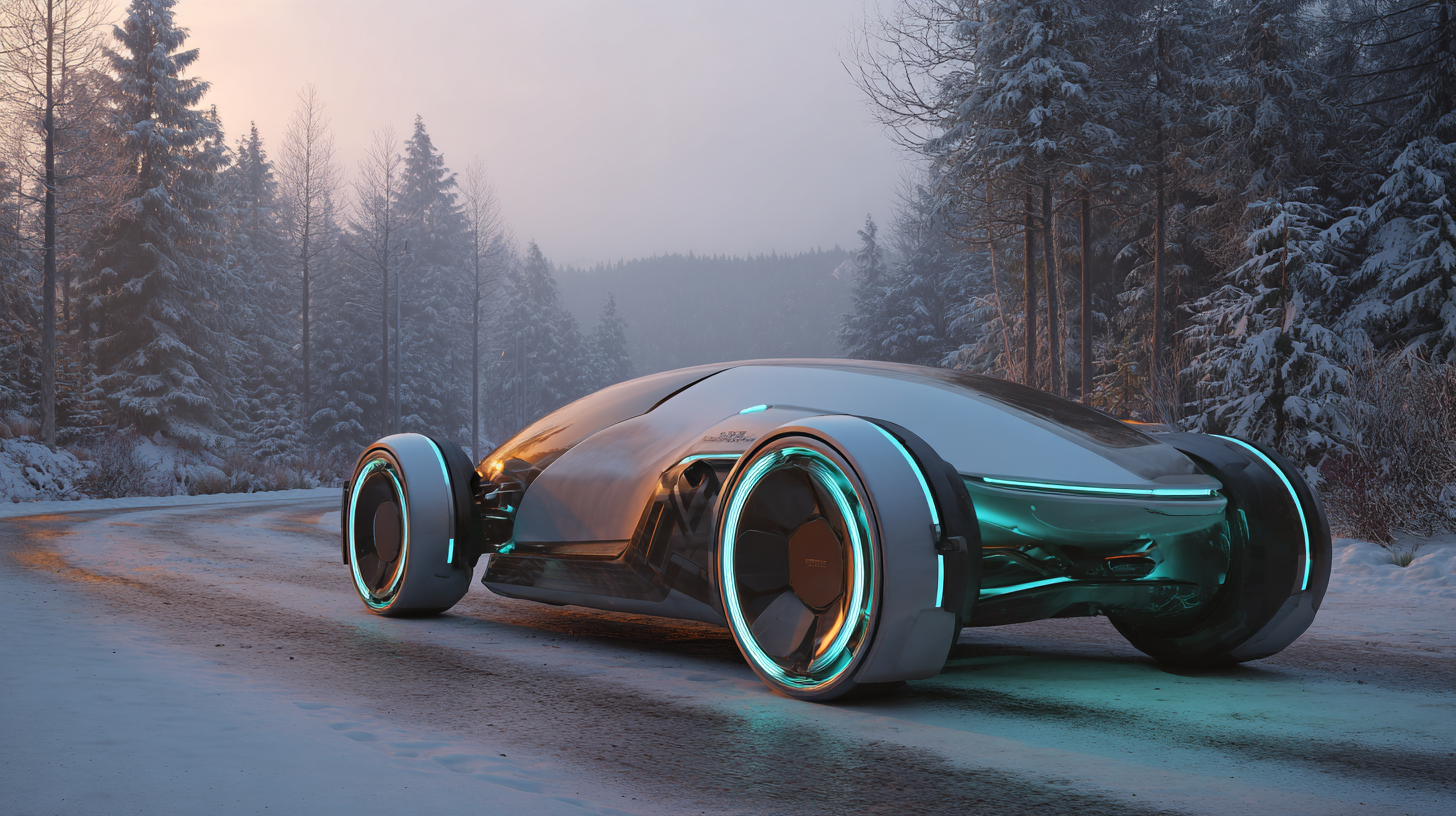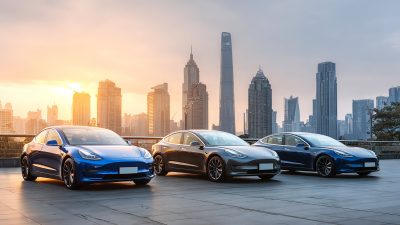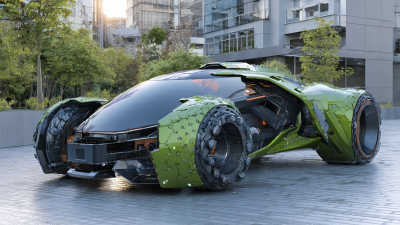Leave Your Message
As the automotive industry stands on the precipice of a transformative era, the emergence of Energy Cars powered by sustainable technology is poised to revolutionize our approach to transportation. According to a report by McKinsey & Company, global sales of electric vehicles (EVs) surged by over 40% in 2020, reflecting a growing consumer demand for greener alternatives and a critical shift in energy consumption patterns. Furthermore, the International Energy Agency (IEA) projects that the number of electric cars could reach 145 million by 2030, fundamentally altering the energy landscape. This transition not only addresses the urgent need for carbon reduction but also introduces innovative technologies that enhance efficiency and performance.

As we explore the integration of digital solutions and sustainable practices in Energy Cars, we unlock the potential for a cleaner, more efficient future, underscoring the importance of embracing cutting-edge advancements in this vital sector.
In the quest for sustainable automotive technology, innovative materials play a pivotal role in enhancing energy efficiency. The development of natural fiber composites, which incorporate plant and animal fibers, has emerged as a promising solution due to their biodegradability and low energy requirements during production. Recent studies indicate that these composites can significantly reduce the environmental footprint of car bodies while maintaining structural integrity and performance. For instance, research highlights that incorporating sustainable materials can lead to weight reductions of up to 30%, directly translating into improved energy efficiency for electric vehicles (EVs).
As the industry shifts towards electric vehicle technology, advancements in materials science are essential for the transition to sustainable energy. The integration of solid-state batteries is one such innovation, offering improved energy density and safety compared to traditional lithium-ion batteries. Current evaluations report that solid-state technology could enhance battery efficiency by 50% while reducing overall manufacturing waste. Moreover, by leveraging Industry 4.0 technologies, such as the Internet of Things and artificial intelligence, manufacturers can optimize production processes, further bolstering the sustainability of vehicle components. These multifaceted approaches underscore the intricate relationship between innovative materials and energy efficiency in the automotive sector.
The future of energy cars lies in the effective utilization of renewable energy sources, which are crucial for reducing our reliance on fossil fuels. According to the International Energy Agency (IEA), global electric vehicle (EV) sales reached 6.6 million units in 2021, and this number is expected to surge as more manufacturers incorporate renewable energy into their vehicle ecosystems. By harnessing wind, solar, and hydroelectric power, manufacturers are developing innovative solutions such as solar panels integrated into car designs and infrastructure to support electric charging stations powered by renewable energy. These advancements significantly lower the carbon footprint associated with traditional vehicle manufacturing and operation.

Moreover, a report from BloombergNEF indicates that the total cost of battery packs has fallen by 89% since 2010, making electric vehicles more accessible and sustainable. The transition to renewable energy not only promotes energy independence but also enhances the operational efficiency of energy cars. With projects like Volkswagen's investment in green hydrogen technology and Tesla's solar energy initiatives, the automotive industry is paving the way for a cleaner and more sustainable future. The adoption of renewable energy sources for powering vehicles will play a pivotal role in the global shift towards a more sustainable transport sector.
The implementation of smart grid technology is crucial for the seamless integration of energy cars into the broader energy ecosystem. By utilizing advanced communication and control systems, smart grids facilitate the efficient management of electricity supply and demand. This technology allows for real-time monitoring and adjustment of energy flow, ensuring that electric vehicles (EVs) can charge during off-peak hours when electricity is more readily available and less expensive. Moreover, smart grids can optimize energy distribution, thereby reducing strain on the grid and enhancing overall efficiency.
Furthermore, smart grid technology empowers energy cars to become active participants in the energy network. With vehicle-to-grid (V2G) systems, EVs can discharge stored energy back into the grid during high-demand periods, providing a crucial buffer and increasing grid stability. This bi-directional flow of energy not only maximizes the utility of renewable sources like solar and wind but also offers financial incentives to EV owners, promoting a sustainable energy future. As we move towards a more interconnected and intelligent energy infrastructure, the integration of smart grid technology will undoubtedly play a pivotal role in revolutionizing the way we harness and utilize energy in transportation.
The future of energy cars is being transformed through significant advancements in battery technology tailored for sustainable electric vehicles (EVs). Over recent years, innovations such as solid-state batteries, which offer higher energy density and faster charging times, have become a focal point in the automotive industry. These advancements not only improve the driving range of electric cars but also enhance their overall efficiency, making them a more viable option for consumers and reducing reliance on fossil fuels.
Tips: Consider investing in EVs with the latest battery technology. Look for models that specify the use of solid-state or lithium-sulfur batteries, as these tend to offer better performance and environmental benefits.
Additionally, researchers are focusing on developing recyclable and less toxic battery materials, which are crucial for reducing the ecological impact of battery production and disposal. With the rise of renewable energy sources, integrating efficient charging infrastructure is paramount for ensuring that electric vehicles can be effectively utilized with clean energy, thus creating a sustainable transport ecosystem.
Tips: When planning to charge your EV, seek out charging stations powered by renewable energy sources like solar or wind. This ensures that your vehicle runs on clean energy and maximizes its sustainability.

The integration of artificial intelligence (AI) into the automotive sector is poised to redefine how energy cars operate, particularly in optimizing energy consumption and enhancing performance. AI algorithms can analyze vast amounts of data in real time, allowing vehicles to adjust their energy usage based on driving conditions, routes, and driver behavior. This not only improves efficiency but also extends the range of electric vehicles, making them more viable for everyday use. By predicting the optimal speed and power output required under various circumstances, AI systems can significantly reduce unnecessary energy expenditure.
Furthermore, AI plays a critical role in monitoring and managing vehicle performance. Advanced machine learning techniques can identify patterns in vehicle data, enabling proactive maintenance alerts and performance tuning. As these systems evolve, they will enhance the overall longevity of energy cars, ensuring they operate at peak efficiency for longer periods. Collectively, these advancements foster a more sustainable future of transportation, where energy cars become integral to reducing carbon footprints while providing a seamless driving experience.






